Daily Wisdom: On Baseball and Life’s Other Great Questions
My uncle used to tell this story every year at his birthday celebration.
There were once two best friends who loved baseball. Their great theological question in life was whether there is baseball in heaven. So they make a pact that whoever passes away first will come back and tell the other whether there is baseball in heaven! Well, one passed away and sure enough, true to their pact, appears to his friend in a dream several days later.
“Well,” asks the surviving friend, “tell me already – is it good news or bad news?”
“Truth is,” comes the response, “it is both good news and bad news.”
“Well what’s the good news?”
“The good news is there is most certainly baseball in heaven. Not only that but there’s the finest diamond you could imagine. Moreover all the greats are here. DiMaggio, Ruth, Cobb”¦and we get to play with them. Everyday you look and you see what teams are up for the next week.”
His friend is overwhelmed with the good news. “That is fabulous!” he responds. “After all that, what could the bad new possibly be?”
“Well, I just looked at the lineup”¦and tomorrow” you’re up to bat.”
As long as we think we will live forever, we can afford to ignore ultimate issues. But once the simple truth that we are all “up to bat tomorrow” is internalized, then the search for meaning becomes a central concern.
Of course, there are appropriately many different answers as to what constitutes meaning. What is absolutely intriguing, though, is that all of the great systems of spirit viewed some form of significant giving beyond the circle of family as being essential to a life well lived!
You cannot be a lover without being committed to the growth of a community beyond your own circle.
Dr. Marc Gafni
The Erotic and the Holy

 There were once two best friends who loved baseball. Their great theological question in life was whether there is baseball in heaven. So they make a pact that whoever passes away first will come back and tell the other whether there is baseball in heaven! Well, one passed away and sure enough, true to their pact, appears to his friend in a dream several days later.
There were once two best friends who loved baseball. Their great theological question in life was whether there is baseball in heaven. So they make a pact that whoever passes away first will come back and tell the other whether there is baseball in heaven! Well, one passed away and sure enough, true to their pact, appears to his friend in a dream several days later. The human self understanding as “King,” stems from the insight, fruit of all serious spiritual practice, that all of reality is included in the divine. Once one realizes that all is the Godhead then one may draw one of two conclusions. First, one might say, well if all is God then I must immediately nullify and surrender to God. And that is good. However one might also say – if all is God, then I am God as well. And that is much better. For the first realization produces what Jewish, Christian and Eastern mystics have called Via Passiva. It’s a passivism, even a kind of resignation which results from the realization that human action is but illusion and the only will which is real is the will of God.
The human self understanding as “King,” stems from the insight, fruit of all serious spiritual practice, that all of reality is included in the divine. Once one realizes that all is the Godhead then one may draw one of two conclusions. First, one might say, well if all is God then I must immediately nullify and surrender to God. And that is good. However one might also say – if all is God, then I am God as well. And that is much better. For the first realization produces what Jewish, Christian and Eastern mystics have called Via Passiva. It’s a passivism, even a kind of resignation which results from the realization that human action is but illusion and the only will which is real is the will of God.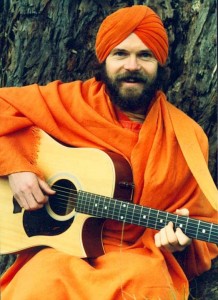 On December 4 at 9 a.m. PT,
On December 4 at 9 a.m. PT,  In the image of the Temple, we are told of the priest who hears the voice of God, praying. To whom could God be praying? The answer — to us. “Please,” says the Voice. “I cannot do it alone. Please help me…”
In the image of the Temple, we are told of the priest who hears the voice of God, praying. To whom could God be praying? The answer — to us. “Please,” says the Voice. “I cannot do it alone. Please help me…”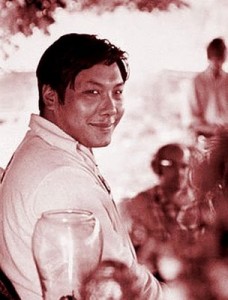 When Chogyam Trungpa Rinpoche, a great (though controversial) Tibetan master, first came to this country, he was renown for always saying, when asked the meaning of Vajrayana, “There is only Ati.” In other words, there is only the enlightened mind wherever you look. The ego, samsara, maya and illusion — all of them do not have to be gotten rid of, because none of them actually exist: There is only Ati, there is only Spirit, there is only God, there is only nondual Consciousness anywhere in existence.
When Chogyam Trungpa Rinpoche, a great (though controversial) Tibetan master, first came to this country, he was renown for always saying, when asked the meaning of Vajrayana, “There is only Ati.” In other words, there is only the enlightened mind wherever you look. The ego, samsara, maya and illusion — all of them do not have to be gotten rid of, because none of them actually exist: There is only Ati, there is only Spirit, there is only God, there is only nondual Consciousness anywhere in existence. Tears or their absence in every culture across time are considered the signposts of spirit glimmerings of eternity and whisperings of divinity. Tears are the divine whisper which utters the secret of our destiny in a tear drop. Heinrich Heine cries out in ecstatic rapture, “What poetry there is in tears;” Hebrew Wisdom would add, “What Wisdom there is in tears.”
Tears or their absence in every culture across time are considered the signposts of spirit glimmerings of eternity and whisperings of divinity. Tears are the divine whisper which utters the secret of our destiny in a tear drop. Heinrich Heine cries out in ecstatic rapture, “What poetry there is in tears;” Hebrew Wisdom would add, “What Wisdom there is in tears.” Unique Self mystics in the old Aramaic texts spoke of two paths, itcafya and ithapcha.
Unique Self mystics in the old Aramaic texts spoke of two paths, itcafya and ithapcha. The rapist, the corporate raider, the Don Juan, and the conqueror are always taking. The sad result is that they never give and therefore never receive. Therefore, the more they take, the less they have. As a result they always remain empty. For many of the biblical mystics, the symbol of conquest was Alexander the Great. He took almost the entire known world of his day. Yet, insisted the masters, without becoming a lover, Alexander would necessarily remain empty.
The rapist, the corporate raider, the Don Juan, and the conqueror are always taking. The sad result is that they never give and therefore never receive. Therefore, the more they take, the less they have. As a result they always remain empty. For many of the biblical mystics, the symbol of conquest was Alexander the Great. He took almost the entire known world of his day. Yet, insisted the masters, without becoming a lover, Alexander would necessarily remain empty.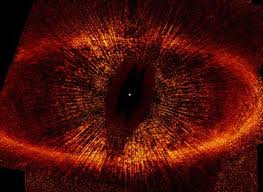 According to Hayyim Vital, the premier student and mystical partner to Isaac Luria, leader of the great renaissance school of Kabbalah in Safed:
According to Hayyim Vital, the premier student and mystical partner to Isaac Luria, leader of the great renaissance school of Kabbalah in Safed:
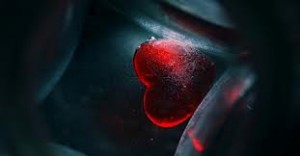
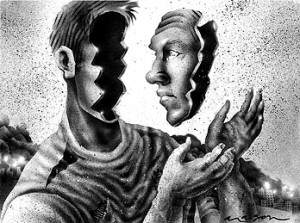 Divinity has one ultimate secret, which it will also whisper in your ear if your mind becomes quieter than the fog at sunset: the God of this world is found within, and you know it is found within: in those hushed silent times when the mind becomes still, the body relaxes into infinity, the senses expand to become one with the world–in those glistening times, a subtle luminosity, a serene radiance, a brilliantly transparent clarity shimmers as the true nature of all manifestation, erupting every now and then in a compassionate Radiance before whom all idols retreat, a Love so fierce it adoringly embraces both light and dark, both good and evil, both pleasure and pain equally; for “I make the Light to fall on the good and bad alike; I the Lord do all these things”; a passionately embroiling Heat so painful it will melt your bones while you hurl yourself to the ground with awe and supplication and reverence and surrender.
Divinity has one ultimate secret, which it will also whisper in your ear if your mind becomes quieter than the fog at sunset: the God of this world is found within, and you know it is found within: in those hushed silent times when the mind becomes still, the body relaxes into infinity, the senses expand to become one with the world–in those glistening times, a subtle luminosity, a serene radiance, a brilliantly transparent clarity shimmers as the true nature of all manifestation, erupting every now and then in a compassionate Radiance before whom all idols retreat, a Love so fierce it adoringly embraces both light and dark, both good and evil, both pleasure and pain equally; for “I make the Light to fall on the good and bad alike; I the Lord do all these things”; a passionately embroiling Heat so painful it will melt your bones while you hurl yourself to the ground with awe and supplication and reverence and surrender.